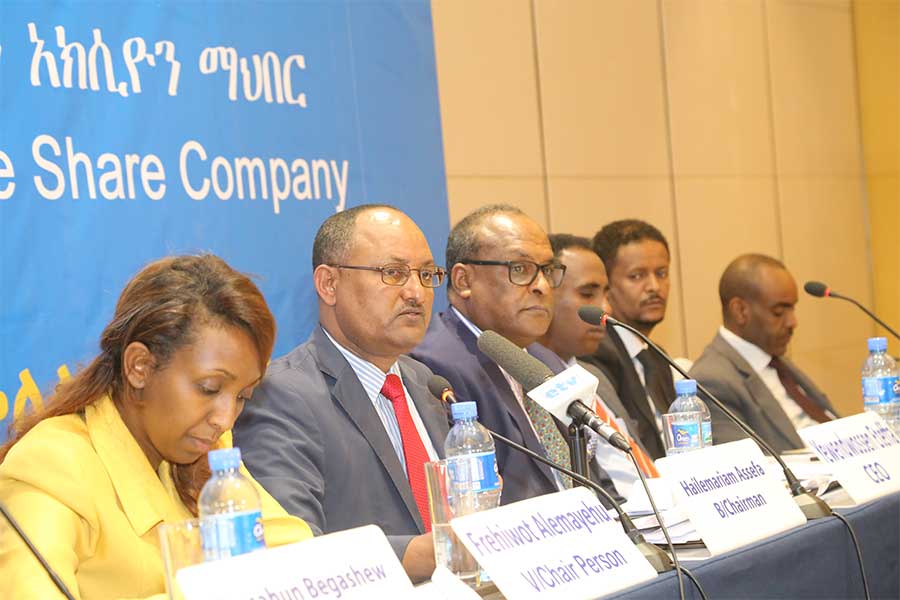
Sep 6 , 2020
By GELILA SAMUEL ( FORTUNE STAFF WRITER
)
The Jobs Creation Commission aims to raise 100 million dollars for an investment fund in a bid to jump-start a greater number of firms that require early-stage and growth capital.
In the making for the past three months, the Commission has drafted a strategy that focuses on organising what amounts to a public-private venture capital fund to finance start-ups, based on their size, assets and the stage of their product.
The Commission has drafted the strategy, which is yet to be tabled to the executives of the Commission, with the participation of BlueMoon, Kifiya and Cepheus Capital. The ministries of Innovation & Technology and Finance have also participated in the consultation process. The fund will be raised over the course of three and a half years from the government, the private sector and development partners.
To raise money, the Commission will approach three types of investors.
Investors that seek a return are referred to as "financial return investors" and include the government and private sector investors such as venture capitalists.
Mission-aligned investors are those who invest in a mission such as aiming at job creation to support women. They can be donors, philanthropic organisations and other corporations that want to fulfill their corporate social responsibility through such a fund.
Geographical investors, which are limited to investing in a certain region, including development agencies and public sector financiers such as the World Bank and the United Nations Development Programme (UNDP), may be interested in investing.
The government will raise 20pc of the fund to show commitment and may invest for a second round after two years. The government can have a stake in the invested company in a specific sector, but also it will be part of the board of directors of the fund, which is expected to be managed by the private sector players.
In the past, funds which were managed by the government were not as successful as expected. The 10-billion-Br Youth Revolving Fund that was availed three years ago is one good example. The fund is aimed at youth and young adults aged 15 to 29 across all the regional states of the country with the notion of creating jobs and promoting savings.
Making sense of this revolving fund was very hard, according to Solomon Debebe, who works as a technical training and wage employment advisor for an international non-governmental organisation.
"This move was a goal without a plan. It was just a dream since its goal was addressing the youth through financing without offering them clearly organised coaching and mentoring," he said.
The new fund will be managed by a fund manager that has experience running a fund of 100 million dollars or more. The fund manager is supposed to invest two percent of the total value in order to demonstrate. The fund manager will also be paid two percent of assets under management annually to run the office and the team.
Dubbed the Start-up Association, potential fund management is currently in the making. The team is led by Gebeya Inc., an educational technology company that provides specialised industry-specific training in software engineering and design.
"We're currently in discussions as to how to make an efficient association," said Bekure Tamirat, regional director of Gebeya.
If the return rate of the investment is above eight percent, then the fund manager gets a profit share from the specific investment. In the African market, the rate of return usually ranges between 20pc to 25pc of the total initial investment, according to the strategy. In order to obtain a fast return on investment, the invested capital is expected to take the size and the status of the company into account.
But the strategy recommends either a 15pc annual return or to double the assets under management over the fund's lifetime. The fund is expected to have a full life of 10 years - the first five years are for extensive investments and the remaining five years are for exiting or recouping investments.
The Commission is expected to commence the second round of the assessment of the fund in a month to develop an investor pitchbook, which is a menu for investors that lists investors based on their mandates, aim and actual allocations by asset class, commitments and fund preferences. Then mobilisation of resources will commence, and operationalising the fund will follow.
The Ministry of Innovation & Technology also drafted a Start-Up Business proclamation that will form the National Start-up Council, which will be tasked with overseeing resource mobilisation for tech entrepreneurs and start-ups. The bill was sent to the Office of the Attorney General for legal review.
Even though any kind of initiative to foster entrepreneurship is essential, work needs to be done on the mindset of the youth, according to Woretaw Bezabih (PhD), an expert on entrepreneurship.
The scheme should work via a 70:30 ratio where 70pc of the funds should be allocated to existing businesses and 30pc to start-ups, according to Woretaw.
"Rather than funnelling funds based on nothing but organising youth," he said, "it's better to help those who are working and coming up with a new product or service development."
PUBLISHED ON
Sep 06,2020 [ VOL
21 , NO
1062]

Radar | Jul 18,2020

Agenda | Jan 28,2023

Fortune News | Nov 04,2023

Fortune News | Dec 28,2019

Commentaries | Aug 27,2022

Radar | Apr 01,2024

Sunday with Eden | Feb 09,2019

Radar | Sep 10,2021

Radar | Apr 12,2020

Radar | Jul 30,2022

Dec 22 , 2024 . By TIZITA SHEWAFERAW
Charged with transforming colossal state-owned enterprises into modern and competitiv...

Aug 18 , 2024 . By AKSAH ITALO
Although predictable Yonas Zerihun's job in the ride-hailing service is not immune to...

Jul 28 , 2024 . By TIZITA SHEWAFERAW
Unhabitual, perhaps too many, Samuel Gebreyohannes, 38, used to occasionally enjoy a couple of beers at breakfast. However, he recently swit...

Jul 13 , 2024 . By AKSAH ITALO
Investors who rely on tractors, trucks, and field vehicles for commuting, transporting commodities, and f...

Jun 28 , 2025
Meseret Damtie, the assertive auditor general, has never been shy about naming names...

Jun 21 , 2025
A well-worn adage says, “Budget is not destiny, but it is direction.” Examining t...

Jun 14 , 2025
Yet again, the Horn of Africa is bracing for trouble. A region already frayed by wars...

Jun 7 , 2025
Few promises shine brighter in Addis Abeba than the pledge of a roof for every family...